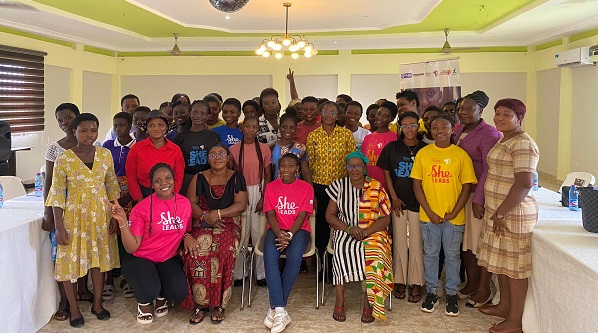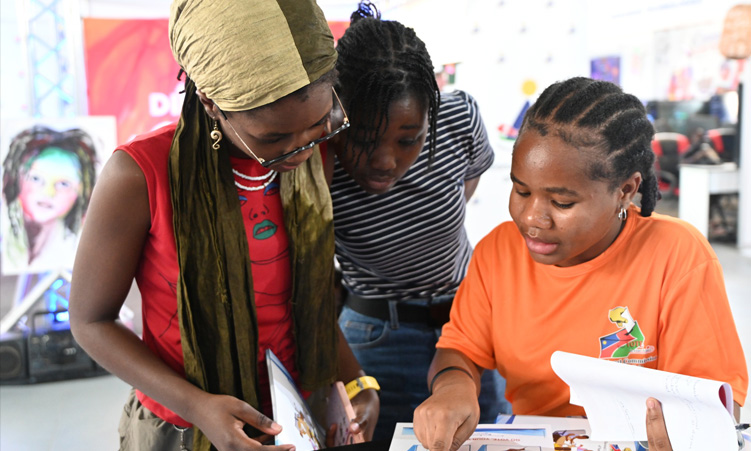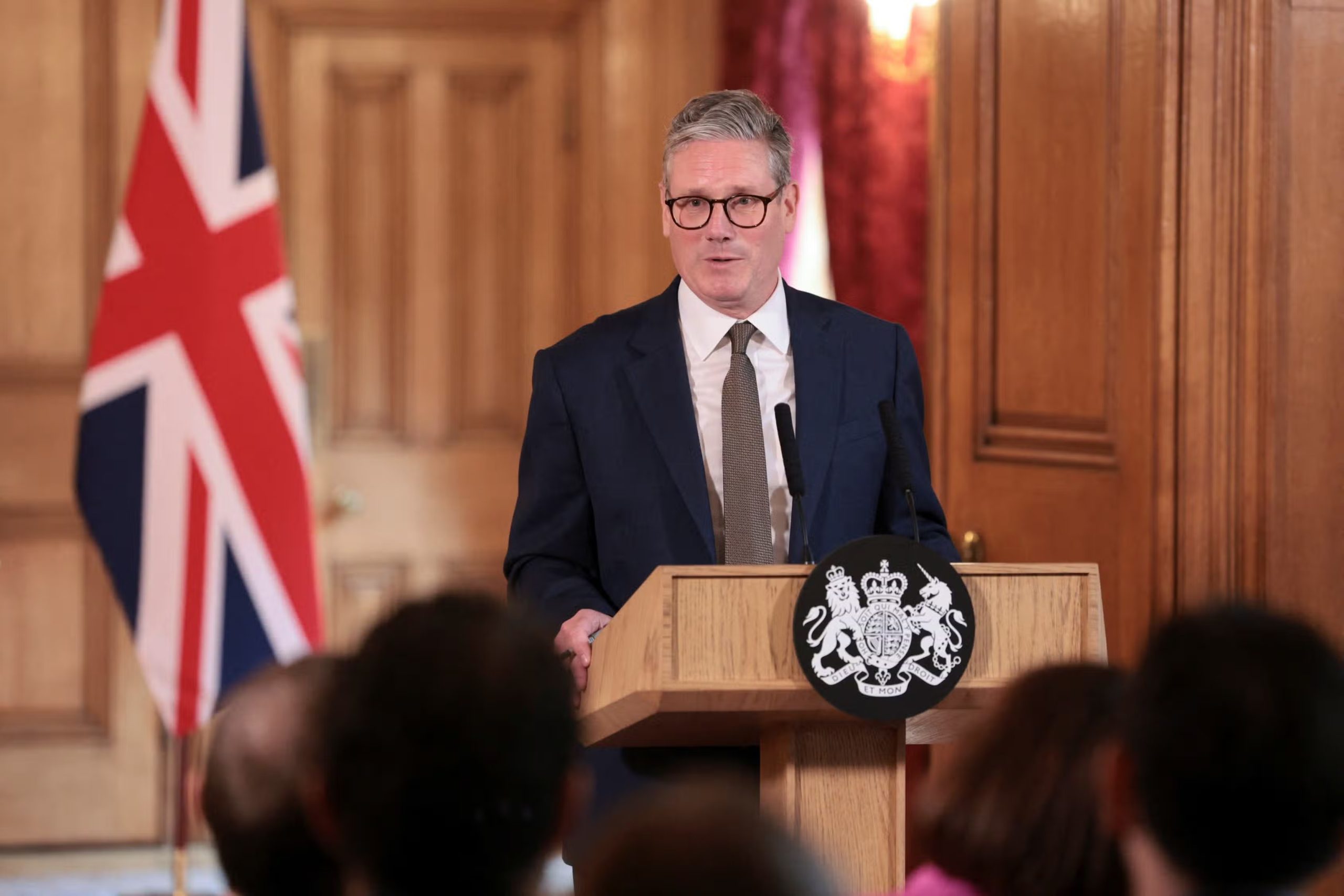Shirley Asiedu-Addo & Joana Kumi
Young girls in the Abura-Asebu-Kwamankese (AAK) and Komenda-Edina-Eguafo-Abrem (KEEA) districts have made a heartfelt call for the inclusion of young girls in community decision-making processes.
Their appeal came during a parliamentary discussion on issues that deeply affect them, highlighting their desire for more representation and involvement in shaping their future.
This discussion was part of a project organised by Plan International Ghana, under the initiative titled “She Leads,” which aimed at empowering young girls and women.
The discussion themed, “Girls’ Vision for the Future,” emphasized the crucial need to amplify the voices of young girls in issues that affect them and encouraged their active participation and leadership within their communities.
Speaking on behalf of her peers, a 15-year-old student from Edinaman Senior High School in the KEEA district, Ellen Yankey, stressed that it was long overdue for young girls and women to be excluded from key conversations and decision-making processes in their communities.
She emphasised that this exclusion has significant implications for their future and personal development.
Ellen noted that despite growing awareness and advocacy for gender equality, there remains a gap between boys and girls when it comes to decision-making roles.
She explained that many still believe that boys are given more opportunities than girls, a belief that continues to hinder progress for women and young girls, especially in rural communities.
She also highlighted the deep-rooted assumption that a girl’s place is in the kitchen, which leads to many girls being subjected to child abuse and limiting their potential.
In her speech, Ellen and her peers appealed to the government, through the Ministry of Gender, to strengthen mentorship programs for girls, particularly those in rural areas. They believe that by building confidence in these young girls, they will be better equipped to face the future and contribute meaningfully to society.
“We believe that when girls are included in decision-making processes, we create a fairer, more just, and equal society. With this in mind, we appeal to the government and community leaders as part of our rights, aspirations, and commitment to a future where every girl can thrive,” Ellen stated passionately.
The Central Regional Director of the Department of Gender, Richlove Amamoo, responded to the girls’ appeal, assuring them that the gender department, together with the Regional Minister, would take steps to ensure that young girls are increasingly included in decision-making.
She explained that the department had already been working hard to protect young girls and women from abuse, but in light of the appeal, they would intensify efforts to promote girls’ involvement in leadership and decision-making processes.
Richlove also took the opportunity to advise young girls to be confident in themselves and to report any cases of abuse to the gender department or a trusted authority figure like a queen mother in their community.
She noted with concern that men often target young girls for defilement and rape, and these girls are sometimes threatened not to report such incidents.
She gave practical advice on what to do in cases of sexual abuse. “If you are ever faced with such a situation, do not immediately bathe or clean yourself with cotton. Instead, report the case as soon as possible and take any evidence to the gender department for appropriate action.
In a bid to foster a more inclusive environment, Richlove also called on both public and private organizations that educate girls on their rights and success pathways to consider including boys in these programs as well.
She noted that many boys are unaware of the legal boundaries regarding relationships with girls, and educating them could help prevent harmful practices.
A beneficiary of the She Leads project, Eunice Johnson, shared how the initiative has transformed her life. “I used to be an extremely shy person and didn’t have many friends. But after joining She Leads, I’ve gained so much confidence. I now hold several leadership positions in different groups and organisations, including my church,” she said.
Eunice encouraged other young girls to believe in themselves and take advantage of opportunities that boost their confidence. “To all young girls out there, trust in yourself and your abilities. Joining programs like She Leads can make a huge difference.”
The project
The She Leads project was primarily designed to empower young girls and women to challenge negative cultural practices and fulfill their potential. The Executive Director of the project, Araba Annan Esq., explained that the initiative focuses on promoting the leadership and inclusion of young girls in decision-making at all levels.
She added that the project seeks to increase the acceptance of girls’ leadership and collective action in a gender-responsive civil society. Moreover, She Leads enables young girls and women to participate meaningfully in government and political institutions, ensuring that their voices are heard where it matters most.











Pingback: The Best Part Of Gossip Girl Was Michelle Trachtenberg - Esbecgroup
Pingback: The Best Dog Breeds for Home Protection - Esbecgroup
Pingback: The new CIA director and the Tehran regime headache - Esbecgroup
Pingback: Transform Windows into Power Plants: Transparent Solar Technology - Esbecgroup